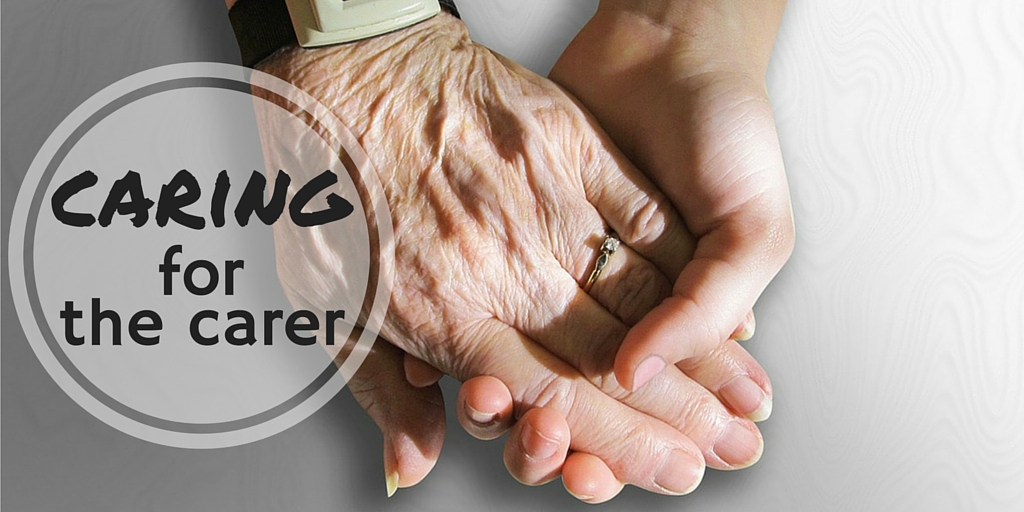
Being a carer is very stressful and very tiring. It can also be very fulfilling and many of us are glad to be ‘giving something back’, especially if it is to a parent who once cared for us. But there is no denying that it can sometimes feel as though we are labouring under an intolerable burden.
In an ideal world, as our relatives or close friends grow steadily more frail, plans would be made for the future, money saved for contingencies, moves made to more manageable accommodation, and help enlisted in advance. In the real world, people fall ill suddenly, accidents happen and the role of carer is suddenly ours without planning or forethought. If at all possible, time should be made after the initial ‘emergency’ to take a step back, draw breath and consider a ‘care plan’. It is very worthwhile at this stage to get the whole family together and agree co-operation with everyone involved.
Care together and cooperate
Lack of communication and co-operation may turn out to be the biggest underlying problem. Group meetings early on will help avoid resentment or guilt developing. Make use of personal strengths here. For example, someone who is not good at practical personal care may instead be able to manage the financial affairs. Someone who enjoys cooking may agree to keep the freezer stocked with ready meals whilst someone who is only free once a week might organise the shopping.
What if you are the only family member? You should not try to take on everything alone. There may well be neighbours or friends of your relative who will help in the same way that family do. Otherwise you will have to turn to professional help. There is no need to feel guilt over this.
Do not neglect to ask for help from the person you care for’s friends and neighbours if you need it. A neighbour will often promise to ‘keep an eye on things’ but it would be much more useful if you asked them to do something specific – say, ‘Can you call round each morning just to check all is well?’ Of course, people may sometimes be unable to help, but unless and until you ask you will never know. Also investigate local clubs and organisations to which the person you care for belongs. For example, their local church, The British Legion, ex-servicemen and women’s organisations, local branches of organisations set up to benefit ex-members of professions or trades. Local and national charities can also be sources of help.
Care for yourself and get the support you need as a carer
Caring for a member of the family is an unpaid ‘occupation’ but you or the person you care for may be able to claim certain grants and allowances and if you are entitled to them you should certainly claim them. You may not realise that, if you are a carer, you can ask the local authority for an assessment of your own needs. The kind of help and support you can get as a carer includes: respite care to give you a break if you are caring constantly for your relative; emotional support from other carers, usually through a local support group; help with caring; and help with household tasks and activities for the person you care for.
As a carer, it is very important that you look after your own physical and mental health. You should never neglect your own health issues because if you are ill the person you are caring for will suffer as well since you will be unable to give the level of care you would wish to. You should take care of yourself physically by eating properly and taking exercise, but you should also build in some sensible respite. For example, pay for a professional carer once or twice a week. A friend, neighbour or other family member could do this, or even some local charities may provide this service.
There are several organisations aimed at supporting carers. Some of these offer information, some offer practical support and some offer ‘moral support’ in the form of local support groups where carers can meet to talk about their problems or concerns with people who are in a similar situation to them. Many support organisations have carers’ support chatrooms and forums accessed via their website and you may find this kind of ‘virtual’ support most helpful.
Make use of all the resources you can to help you and the person you care for. Read books, check magazine articles, ask at the library, search the internet. Buy or arrange provision of any equipment that will make life easier. Above all, ask what is available. Especially ask your district nursing team. They have access to a lot of information and contacts.
It can be difficult, but try not to allow yourself to feel constantly guilty. Those who we care for do not always show their appreciation, and indeed in some cases, they may be unable to do so. Try always to assure yourself that you are doing the best you can.
At this point it occurs to many carers to think about their own future. It is a very good time to make plans whilst you are caring for another because the difficulties and limitations of frail old age will be clearly before you (as well, perhaps, as the compensations). So, this could be an ideal time to think about your pension and will. You can feel secure in that you have made all the plans you possibly can.
Share this blog for Carer’s Week next week (6-12 June) and help highlight the challenges carers face and recognise the contribution they make to families and communities throughout the UK.
Read more advice and guidance for carer’s from Mary Jordan’s book The Essential Carer’s Guide out now as ebook and paperback.
